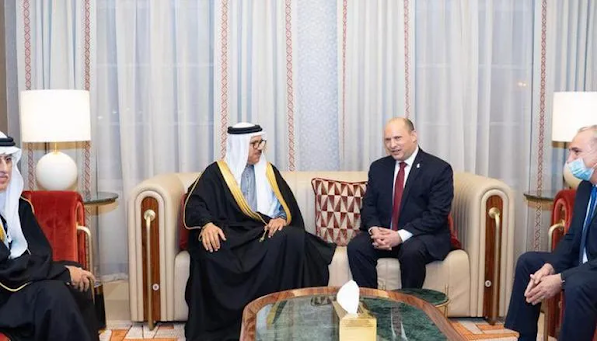Israel’s Prime Minister Visits Bahrain To Discuss Peace, Stability In Middle East; The United States Reacts
Israeli Prime Minister Naftali Bennett met with Bahrain's King Hamad bin Isa Al Khalifa and Prime Minister Crown Prince Salman bin Hamad Al Khalifa in Manama, capital of Bahrain, on Tuesday to discuss ways to build a more stable Middle East region.
This is the first official visit by the Israeli Prime
Minister to Bahrain. Reportedly, Bennett told the king, “I think we discussed
many ways to build new bridges and architecture for a stable region.” Bennett
expects to continue the relationship with Bahrain. He said, “We will stand
together to fight against common challenges.” He added, “I think our goal is to
turn this peace from a peace between governments to a peace between people.”
Bennett was welcomed by Bahrain's foreign and industry
ministers, the Israeli ambassador to Bahrain, and other high-ranking officials.
He was also given a guard of honour by Bahrain. He was also given a grand
welcome when he arrived at the crown prince's office.
The military band played "Hatikvah" to welcome
him. "Hatikvah" is the national anthem of Israel. Reportedly, the
Crown Prince said that all responsible nations must make an effort to achieve
peace in the Middle East region.
According to the Israeli Prime Minister’s Office, Bennett’s conversation
with the Crown Prince and the King extended beyond the allotted time.
Reportedly, Bahrain normalised ties with Israel in 2020 as
part of the Abraham Accords, a series of agreements between Israel and Arab
states backed by Washington.
United States Secretary of State Antony Blinken also
appreciated Bennett’s visit to Bahrain. Blinken said this was an important step
towards a better future. Blinken wrote on Twitter, “This week's visit by
Israeli PM to Bahrain was another important step towards a better tomorrow for
the Middle East region. We welcome the momentous visit and look forward to
building new partnerships together.”

Comments
Post a Comment